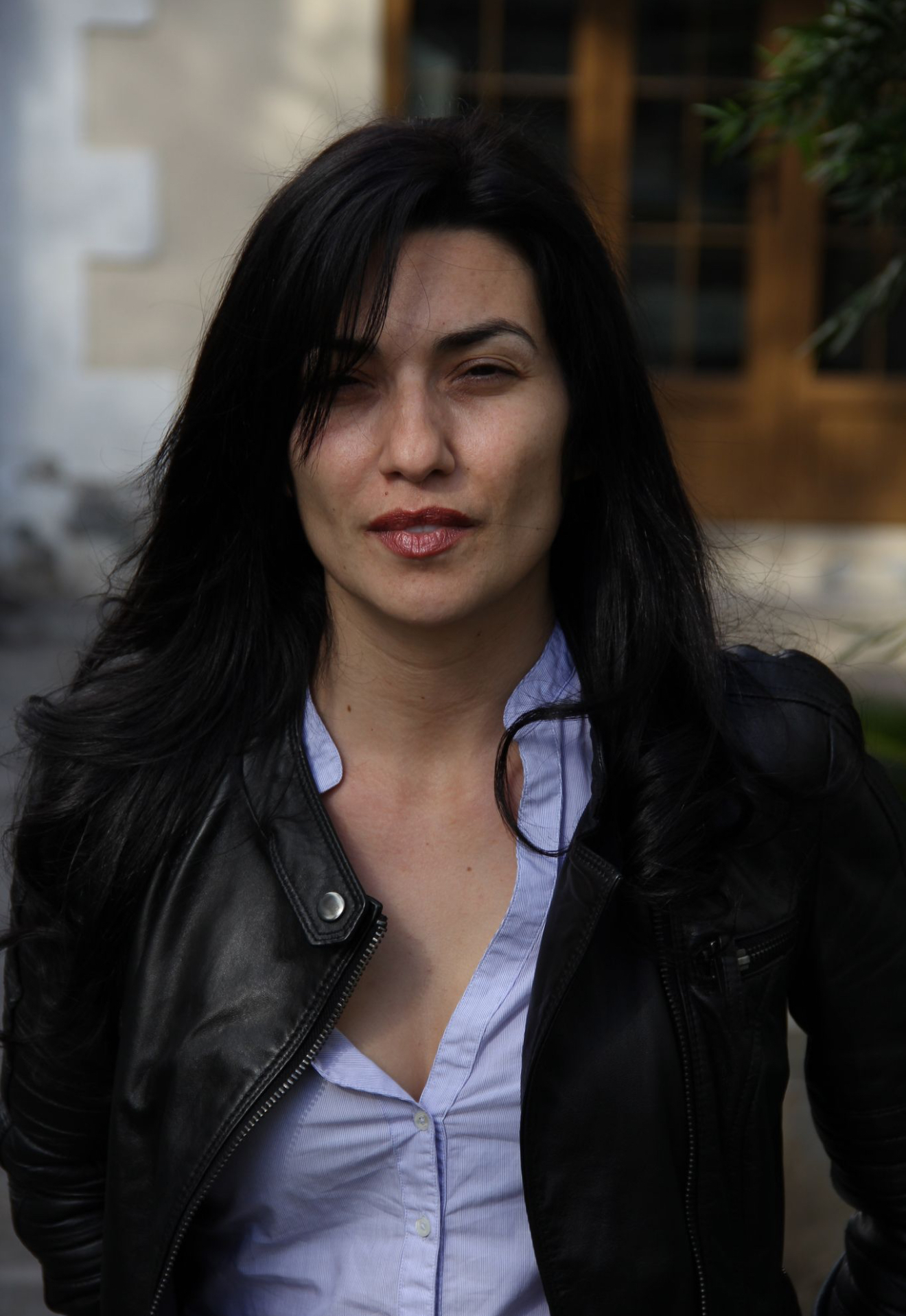 I was born in the 70s in beautiful war-torn Cyprus. People were terrified on each side of a once united island now divided by the most shameful violent civil war. Families were torn apart, people were misplaced and made homeless, missing bodies silently waited to be discovered years later. As this new Cyprus became fragmented and fearful of its very existence, little did I realise my upbringing in this situation, exacerbated by displaced and war-orphaned parents, was doing just the same to me. Besides the extreme mental and physical violence, I was brought up in an isolated world, feeling scared and lost.
I was born in the 70s in beautiful war-torn Cyprus. People were terrified on each side of a once united island now divided by the most shameful violent civil war. Families were torn apart, people were misplaced and made homeless, missing bodies silently waited to be discovered years later. As this new Cyprus became fragmented and fearful of its very existence, little did I realise my upbringing in this situation, exacerbated by displaced and war-orphaned parents, was doing just the same to me. Besides the extreme mental and physical violence, I was brought up in an isolated world, feeling scared and lost.
I didn’t understand at the time how my environment affected my perception of the world: colours were so intense, tastes were sometimes unbearable and at other times undetectable, sounds were either soothing or drove me crazy. Human relationships made me anxious and I found society`s rules senseless and confusing. All this made sense much later when I was diagnosed with a neurodiverse mind, a touch of autism and a lot of sensory processing dysregulations coupled with ADHD.
I never knew that parents were supposed to offer security to a child, because in my case I perceived them to be the source of my insecurity and fear.
I spent most of my childhood seeking refuge in books. I was never good at making friends or fitting the mould, and I still am not to this day.
At the age of 15 I took the massive step of leaving this Island of mine and moving to London to study. I was deconstructing my old self while constructing my new self. I fell in love at various times, discovered the magical city, met people from all backgrounds, and was able to be me without standing out like a cactus – that was the biggest freedom I’ve ever experienced.
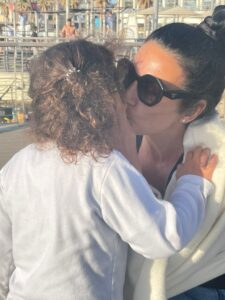 As soon as I finished my Masters degree, I decided to build my own family, so I said yes to the first handsome man who asked me to marry him. As a result, I became a mother before I’d reached mature womanhood.
As soon as I finished my Masters degree, I decided to build my own family, so I said yes to the first handsome man who asked me to marry him. As a result, I became a mother before I’d reached mature womanhood.
In my mid-twenties, with my short marriage behind me, I experienced yet another change of country, this time with a little soul looking up to me. I swore I would figure out who I was and be the strongest, most loving mother I could be, unlike my own mother who was sadly never able to show affection nor did she know how to stand up for herself or for me.
My son and I had the most amazing time when he was young. Although life wasn’t easy at times, being a single mother in a foreign country, we did very well. I doubled my responsibilities by trying to be a father to my son as well as a mother. I couldn’t bear the possibility that he would miss out on a father’s love, so I tried to take on both roles.
Sometime later, in my early thirties, I fell in love and married my French husband. He brought three beautiful children with him from a previous relationship and together we created a secure and loving home. Despite this I was always on edge, never able to rest, always busy. I inhabited the roles of problem solver, people pleaser, peacekeeper, family builder and strong warrior. My responsibilities had now increased 1000-fold and I felt I had to be the best at everything I touched. I didn’t know that I was doing all this and more to justify my being on this earth and to feel I deserved the love I was receiving.
I was in this internal race – running towards things while running away from myself.
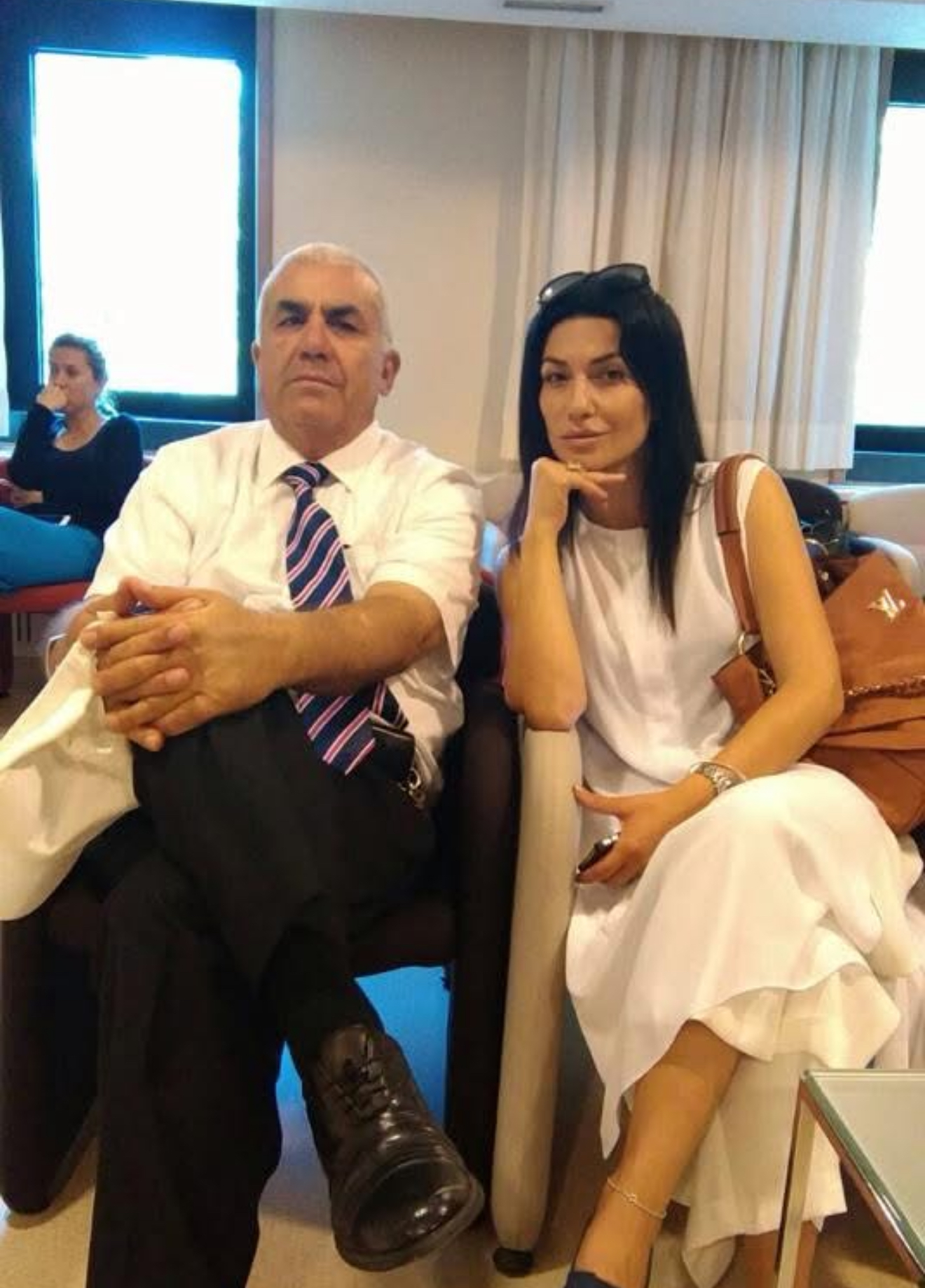 When I was 40, we were gifted with a little boy. What a great feeling it was to give birth again after all those years, but within a few weeks I had the greatest pain amidst the joy, as I lost my father to a horrible illness. I don’t think anything ever prepares you to face the loss of a parent, whatever age you may be. At that time all I felt was darkness. I withdrew, and I wanted to stay in that void forever.
When I was 40, we were gifted with a little boy. What a great feeling it was to give birth again after all those years, but within a few weeks I had the greatest pain amidst the joy, as I lost my father to a horrible illness. I don’t think anything ever prepares you to face the loss of a parent, whatever age you may be. At that time all I felt was darkness. I withdrew, and I wanted to stay in that void forever.
After a while I was able to function again, but I was consumed with anxiety and suffered panic attacks. I thought any moment was going to be my last.
But broken or not, I was still a wife, a mother, a stepmother, a sister, a daughter and a new mother to a precious neurodiverse boy. I travelled the world to understand him and I left no stone unturned to find solutions for him. He inspired me to start raising awareness for schools to be inclusive, for therapies to be made available on the school grounds as part of the curriculum, to bring awareness to shame around neurodiversity and to help exhausted parents and families of neurodiverse children.
I carried on as if I was superhuman until one day it dawned on me that if I didn’t do something about myself, I was going to die and all my efforts would be wasted.
I knew I needed to journey within, however scary that felt, but by then I was unable to communicate with my older children or my husband. We were each in survival mode, each with a pillar to support but we were always in parallel, never joined together. We desperately needed to talk to each other, but we didn’t know how. Luckily in 2023 a good friend of mine suggested I contact Mathew Pruen, a couples counsellor and Hoffman Facilitator. He came to our home in Spain where my husband and I worked intensely with him on our relationship. Dear Matthew’s since passed on, but we’re forever grateful to him for saving our marriage and for recommending the Hoffman Process as a next step.
While I was still researching Hoffman my husband had already signed up and was on his way to the Process in Lyon, France. When he came home, I almost didn’t recognise him. Although I usually couldn’t justify spending time on myself, I decided to go too, as deep down I knew it was now or never.
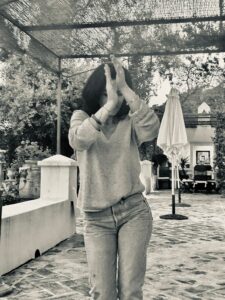 I found the Process to be the most magical journey. Although I started it with a group of random strangers by the end of the week they felt part of my soul family. If I live to be a hundred, I’ll never forget seeing the transformation of each of us over the course. Everyone’s seemingly ‘normal’ facade hid not only suppressed pain which released as we witnessed it, but also the most amazing authentic human beings. I walked through the door with heavy footsteps and skipped out lighter than air.
I found the Process to be the most magical journey. Although I started it with a group of random strangers by the end of the week they felt part of my soul family. If I live to be a hundred, I’ll never forget seeing the transformation of each of us over the course. Everyone’s seemingly ‘normal’ facade hid not only suppressed pain which released as we witnessed it, but also the most amazing authentic human beings. I walked through the door with heavy footsteps and skipped out lighter than air.
During that week I forgave my parents from my heart and realised my real value. I met my true self, and I loved who I found. I no longer want to be anyone else. Now I feel that it’s acceptable to be authentically me. I can finally say ‘no’ without needing to justify myself and I’m no longer so triggered by others.
I have far more fun, I laugh more and have a stronger connection to nature. I appreciate life and am full of gratitude for what I have. Before I went on the Process, I was afraid my marriage wouldn’t survive, but now we’re more in love than ever.
Sometime after the course, some of my group were able to meet and that sense of belonging, security, being seen and loved was so present that there was little room for words.
There’s a Hindu legend that says long ago the gods were so angry at the way humans abused their divinity that they decided to hide it somewhere they thought we’d never find it – inside ourselves. And that’s what Hoffman did for me. It reconnected me with my divinity. I’ve never felt so happy to be alive, so sure of myself, been so kind to myself or felt such a sense of security. I’m now sure that I belong in this world and I’m not just a mistake.
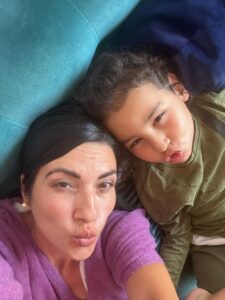 My desire to advocate for the elderly, children, women and anyone who’s vulnerable is undimmed and remains part of my Process vision. Having a neurodiverse child has made me aware of how poorly they’re treated in the education system – certainly in Europe – unless you’re able to afford to send them to private schools which, even then, may not be adequately equipped or trained to include them. It also changes your relationships, as many friendships haven’t withstood the strain of me needing to home school and look after our son. We also share the fears of all parents of such children, wondering who will look after them when we’re no longer here to do so.
My desire to advocate for the elderly, children, women and anyone who’s vulnerable is undimmed and remains part of my Process vision. Having a neurodiverse child has made me aware of how poorly they’re treated in the education system – certainly in Europe – unless you’re able to afford to send them to private schools which, even then, may not be adequately equipped or trained to include them. It also changes your relationships, as many friendships haven’t withstood the strain of me needing to home school and look after our son. We also share the fears of all parents of such children, wondering who will look after them when we’re no longer here to do so.
To instigate change, I’m now CEO of a not-for-profit organisation focusing on humane intervention on neurodiversity. We train teachers, nannies, parents and caregivers in educating and raising neurodiverse children.
Having looked at the positives and negatives of my own family legacy on the Process, I’m determined that mine will be one I’ve really considered and one that will make a difference for generations to come.
You can read more about the Humane Intervention on Neurodiversity here. If you’d like to know more about the project, you can contact Fatosh via WhatsApp messages on +350 540 200 06





 Sign up to receive monthly newsletters from Hoffman
Sign up to receive monthly newsletters from Hoffman